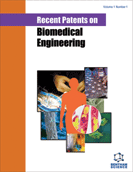Abstract
Quantum dots (QDs) are nanometer-scale crystals, which have tunable fluorescence signatures, narrow emission spectra, brighter emissions and good photostability. These properties enable QDs as powerful inorganic fluorescent probes for biological applications, such as imaging (in vitro and in vivo), biosensing, biolabeling, gene expression studies, protein studies or medical diagnostics. High quality QDs are usually synthesized in nonpolar solvents with hydrophobic coatings. For in vivo applications, QDs have been surface modified by substituting their hydrophobic coating molecules with various hydrophilic capping agents of biofunctional linkers. This article focuses on recent patents on the preparation of QDs and potential applications in biomedicine, including core-shell QDs, water-soluble QDs, biofunctionalized QDs and encapsulated QDs. Energy transfer between QDs and dye acceptors has been reported through fluorescence resonance energy transfer or bioluminescence resonance energy transfer technologies.
Keywords: Biofunctionalized QDs, biolabeling, core-shell QDs, detecting, encapsulated QDs, imaging, synthesis, watersoluble QDs.
 5
5

